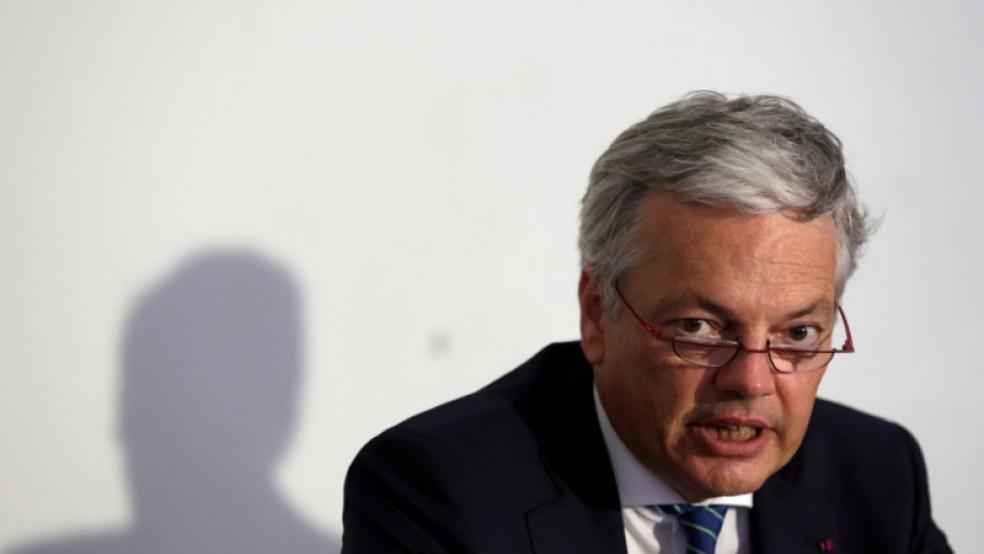BRUSSELS (Reuters) - Feuding Belgian politicians, keeping Canada and the European Union waiting, resume talks on Wednesday with hopes fading that they will unblock a Transatlantic free trade deal in time for a planned signing summit.
Canadian Prime Minister Justin Trudeau was due to fly to Brussels to ink the CETA trade pact with EU leaders on Thursday. But Belgium's federal government failed in six hours of negotiations on Tuesday to overcome a veto from the region of Wallonia that is stopping the European bloc from signing up.Didier Reynders, the Belgian foreign minister who chaired the talks, said he hoped that his liberal-led federal government could forge a common position with Socialist-led Wallonia, one of five devolved authorities whose agreement it needs. It would then go back to EU negotiators trying to conclude the accord."I hope we can give a signal to our European colleagues that we are ready to respond to the European discussion on the basis of Belgian proposals," he told reporters late on Tuesday, while stressing that he could not yet say if Belgium would sign up.Paul Magnette, the Wallonia premier, has said it could take some weeks to agree a deal that has been seven years in the making. He repeated on Tuesday that his French-speaking region, less than 1 percent of the EU's 507-million population, could not agree to an arbitration system in CETA that he said favoured multinational corporations over existing national courts.EU and Canadian officials have said that even if Trudeau does not come to sign the accord, they will keep talking. Canada, with much to lose from failing to gain easier access to such a big market, says the ball is in Europe's court.All 27 other EU states are ready to sign up, as is Belgium's federal government and its biggest region, Dutch-speaking Flanders. Critics accuse the French-speaking Socialists, pushed out of federal power for the first time in over 20 years by the current coalition, of exploiting its veto for domestic ends.Magnette, who has reacted angrily to pressure to reach a deal in time for Trudeau's visit, told reporters after the talks that he wanted an accord with Ottawa: "We've always negotiated in good faith," he said. "Our demands are very clear," he said. "We want to start to be understood." (Additional reporting by Marilyn Haigh; Editing by James Dalgleish)Belgians keep EU, Canada in suspense on trade deal

© Enrique de la Osa / Reuters



